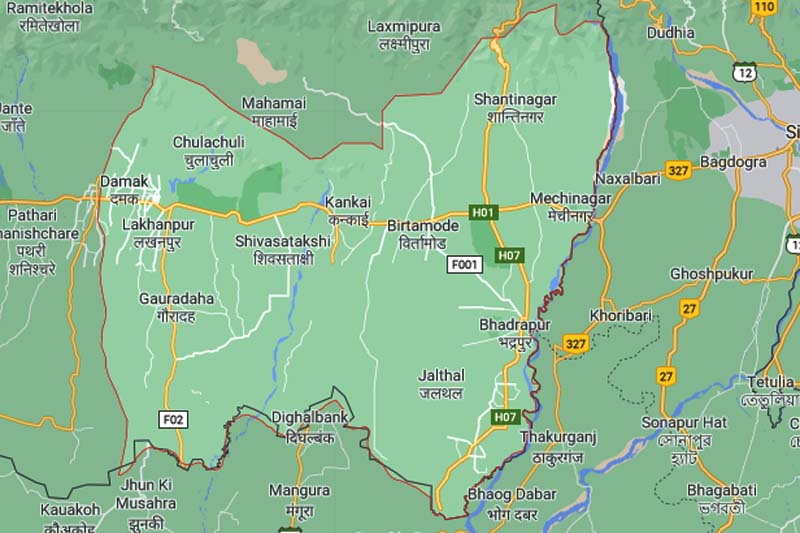

Youths between 18 to 35 years of age are found to be more vulnerable to drug abuse in Jhapa. According to the data, 307 people were apprehended for drugs abuse last fiscal year (2020-21) and 261 or 85 per cent of them belonged to the above-mentioned age group.
The District Police Office, Jhapa said most of the accused were either secondary-level students or those pursuing higher academic degrees. With falling into addiction, their academic performance was found to be eroded.
The district shares its border with West Bengal of India to the east and with Bihar state to the south.
The open border system with India is blamed for flourishing an illegal market of Narcotic drugs in the district as smugglers take undue benefits of the open border to make their business. The statistics show that the rates of drug smuggling did not slow down during the COVID-19 lockdown as well.
According to police, of those arrested last fiscal year, eight per cent were Indian nationals. A total of 195 cases of drug smuggling were registered in the district last fiscal year while the figure was 118 in the previous year.
While analyzing the registered cases and statements of detainees, it has been found that drug smuggling is used as a means of making quick money.
As per the statement, 42 per cent of those arrested last fiscal said they were in this illegal trade for monetary gains and 26 percent narrated the same before police during interrogation during the previous fiscal year.
Likewise, 38 per cent of those arrested in the last fiscal said the purpose for smuggling was for self-use while 20 percent denied disclosing their intentions.
Indian town Pani Tanki sharing its border with Kakarvitta, the major transit point in eastern Nepal, has been used as one of the major points for trans-border supplies of Narcotic drugs. When the Kakarvitta checkpoint was shut during COVID-19 lockdown, the Nepal-India border points in north Bahundangi and south Jamirgadhi were used as alternative routes for drug trafficking.
Police had cases that some persons involved in drug trafficking cited that they were medically prescribed for the use of drugs they were possessing at the times of arrests.
Before the outbreak of the COVID-19 pandemic, police used to launch a campaign against drug abuse targeting schools and it has not been able to resume the camping as COVID-19 still continues to pose a grave public health threat.